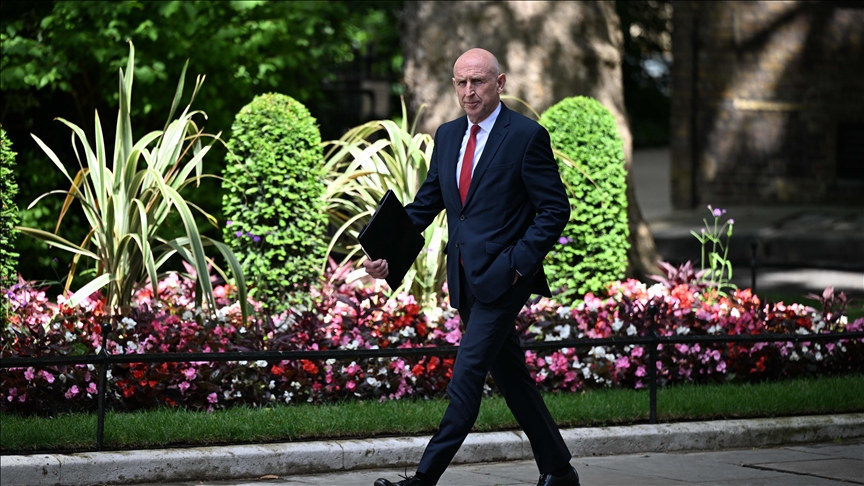Britain and France signal possible coordination of nuclear deterrents to defend Europe
Joint declaration says independent arsenals could be used together in face of shared threats

LONDON
Britain and France will strengthen defense ties under a new agreement that allows their nuclear deterrents, while remaining independent, to be coordinated in response to major threats to Europe, officials said Thursday.
The declaration was announced during meetings in London between British and French defense leaders, and includes provisions for nuclear research, missile development, joint exercises and a deeper integration of military capabilities.
“The UK and France are stepping up together to meet today’s threats and tomorrow’s challenges,” British Defense Secretary John Healey told Sky News.
“France has always been our longest standing ally. We're close on military cooperation, so we'll be announcing new coordination on nuclear cooperation, on research, on exercising, on testing and coordinating our deterrence in the face of extreme threats that our countries in Europe may face,” he said.
A statement from the UK Defense Ministry confirmed the new declaration, which for the first time explicitly states that while both countries’ nuclear forces remain sovereign, they can be used in coordination. The two nations also reaffirmed their commitment to the nuclear non-proliferation regime.
“There is no extreme threat to Europe that would not prompt a response by both nations,” the ministry said.
This formal understanding means that any actor threatening Britain or France’s vital interests could face a joint nuclear response, despite the legal independence of their arsenals.
“The UK and France are Europe’s only nuclear powers, with deterrents that contribute significantly to the overall security of NATO and the Euro-Atlantic,” the statement added.
The agreement also includes plans to scale up the countries’ jointly deployable military force to 50,000 troops. The focus will shift toward high-readiness operations to confront current threats in the region.
“Increased coordination of our militaries, so a force of 50,000 ready to activate to defend Europe, strengthen NATO and above all, increase coordination on industrial production, new missile production and support for over 1,600 jobs in the future,” Healey said.
He said the new defense initiatives would help “drive economic growth” through long-term, high-skilled jobs in the defense sector.








